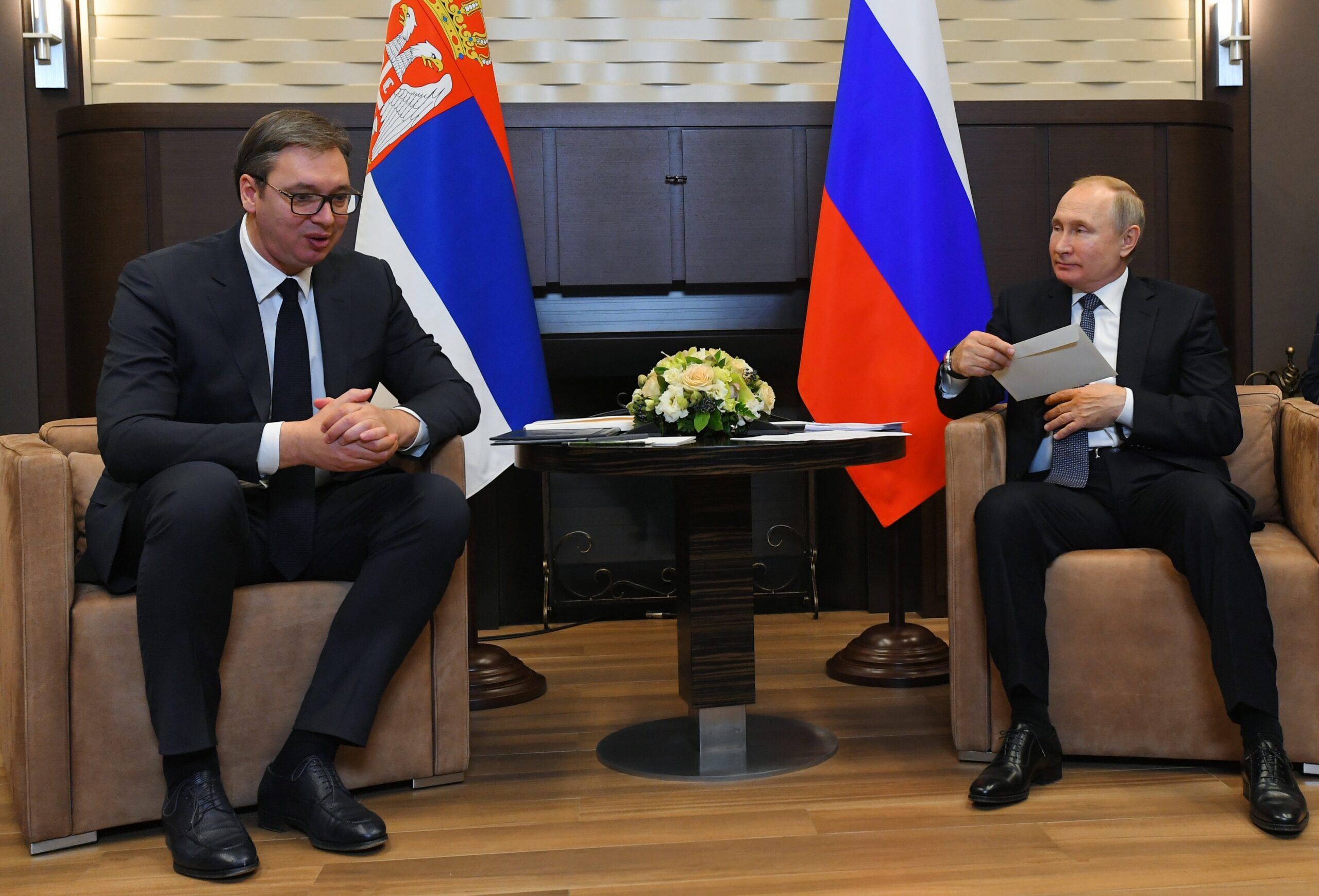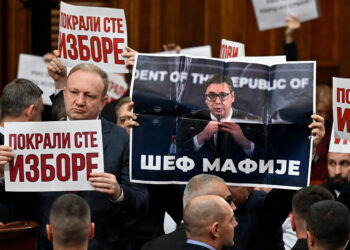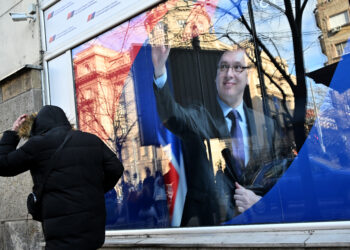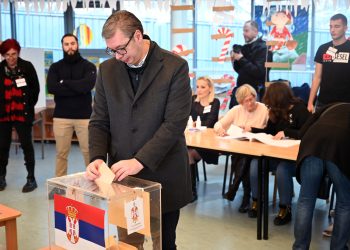Brussels – Faced with continued evidence of non-alignment by Serbia’s President Aleksandar Vučić—if not outright provocation—to the EU policy on Vladimir Putin’s Russia, the European Union as a whole seems immobile and unable to react. Because if some institutions are able to stand in clear opposition and take even very tough stances (as the EU Parliament recently did), others are not even trying to make Belgrade understand that any negative action on the path to EU membership may result in an equal and opposite reaction in Brussels.
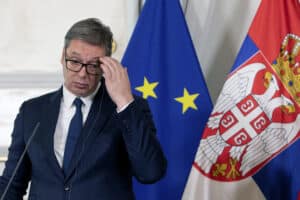
“The new momentum of the EU enlargement process offers Serbia and the Western Balkans an opportunity to move forward, while the Growth Plan will accelerate integration. Time to act is now,” is what European Council President Charles Michel wrote in a post on X at the end of a phone call with the Serbian leader on “the way forward on Serbia’s EU path.” Not a particularly vibrant message, which somewhat clashes with the week of political statements and actions under the banner of the historic understanding between Belgrade and Moscow, despite the obstacles of the war in Ukraine to relations between Vučić and Putin. Over the past two years, the Serbian president had to find a balance in order not to become the pariah in Europe—embracing total opposition to the EU’s hard line against the Kremlin—but at the same time avoid being forced to sever ties with Moscow by adopting international sanctions.
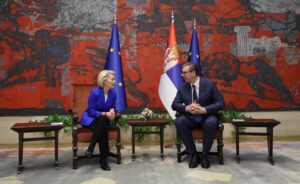
In other words, while the road to EU membership remains open, Vučić’s Serbia is the only EU partner claiming non-alignment to the Common Foreign and Security Policy, especially on sanctions against Moscow for invading Ukraine, not even in principle. “You have many friends in all European countries, and all of them have imposed sanctions on Russia.
The small Serbia is the only country that has not imposed any sanctions,” is President Vučić’s message in an interview for the Russian news agency Tass, peppered with what cannot but be considered a blatant provocation to Brussels: “A true friend is recognized in moments of difficulty, it is in these moments that one shows one’s true face.” While at every international meeting, “the main topic is sanctions against Russia,” Vučić reiterated that “we will try to defend our position for as long as possible. We have been
able to do that for two years already. I don’t know if we will keep
doing that, but I hope for it.”
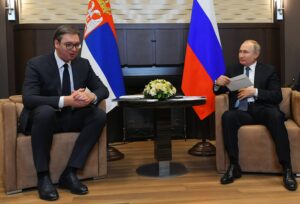
Sanctions on Russia are not the only issue in the relationship between Brussels and Belgrade. Although Vučić will receive an energy support package from Brussels of 165 million euros (in addition to what is already in the Economic and Investment Plan and possible allocations from the Western Balkans Growth Plan), in May 2022, he signed an understanding with Putin for three years of Russian gas on favourable terms. For the Kremlin, Serbia is a kind of bridgehead in the Western Balkans, so much so that Brussels continues to raise concerns about the possible Russian destabilization of the region after the attack on Ukraine. One of the favoured ways is through disinformation and anti-Western propaganda, which on Serbian territory is made possible by Russia Today Balkan, a broadcaster banned by the European Union but operational in Belgrade since July 2022.
And then there is the issue of the military relationship, which has come up worryingly over the past few days. President Vučić himself unveiled last Thursday (Feb. 15) the new addition to the Serbian military’s arsenal, the anti-drone Repellent system purchased from Russia: a mobile system that can destroy swarms of surveillance and attack drones, enabling it to automatically detect and neutralize enemy reconnaissance and kamikaze drones at distances of up to 30 kilometres. Added to this is the 300 million euro investment in domestic industry, particularly artillery systems. Introducing them, Vučić delivered another not-unambiguous message: “We may love drones and helicopters, but it is artillery that wins on the front; we can see it in Ukraine.”
Find more insights on the Balkan region in the newsletter BarBalcani hosted by Eunews
